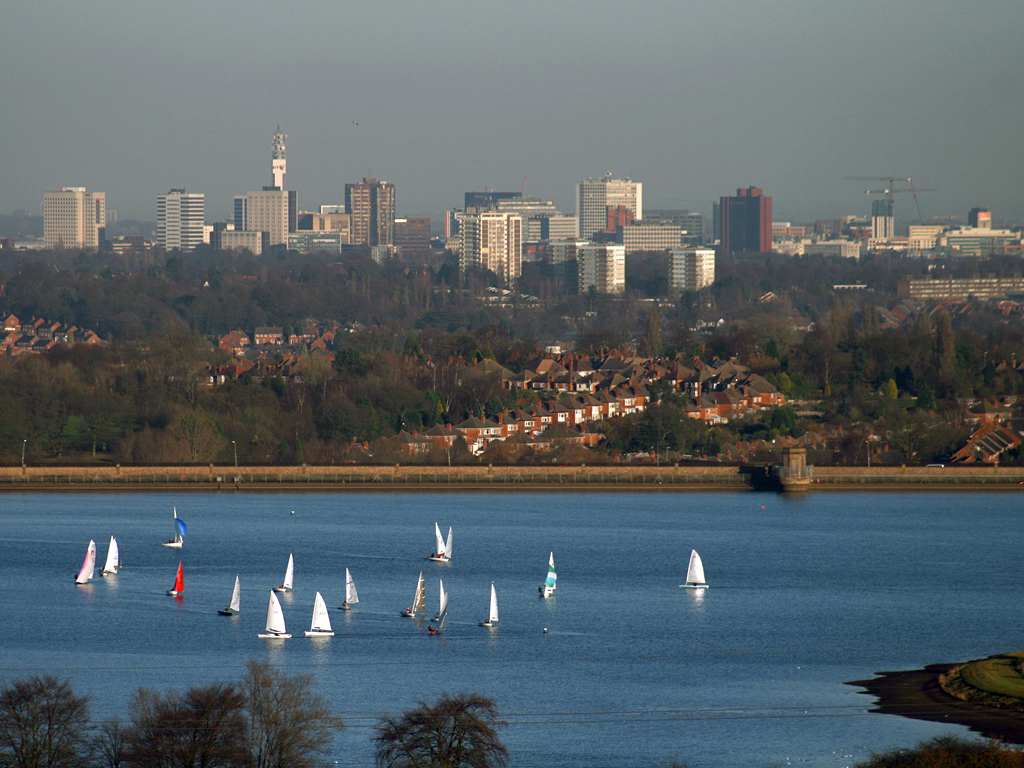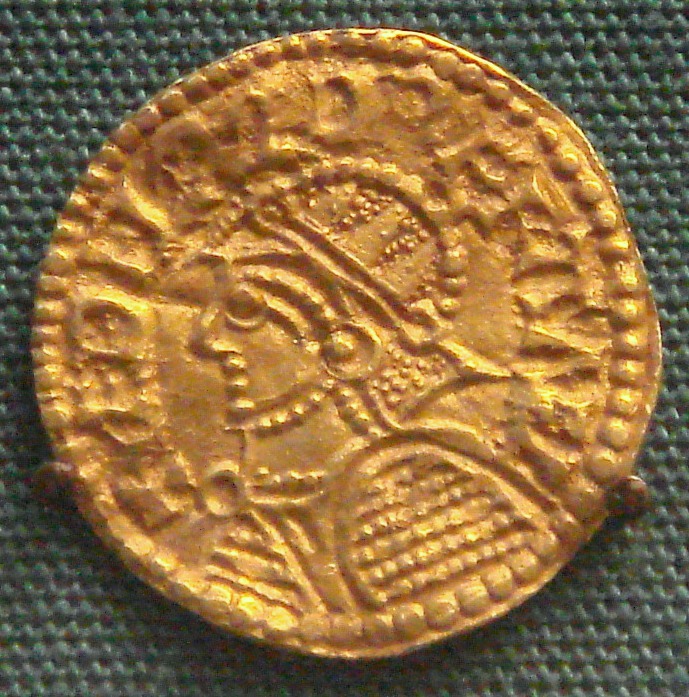|
Bilsæte
The Bilsæte ("dwellers of the ridge") were a tribe or clan in Anglo-Saxon England living in an area surrounding a small ridge now occupied by the modern settlement of Bilston in the West Midlands of England. A grant of land from King Aethelred bestowing Wolverhampton on Lady Wulfrun __NOTOC__ Wulfrun(a) (-) was an Anglo-Saxon (early English) noble woman of Mercia and a landowner who held estates in Staffordshire. Today she is particularly remembered for her association with ''Hēatūn'', Anglo-Saxon for "high or principal ... in 985 named the settlement as ''Bilsatena'', and a later Anglo-Saxon charter of 996 calls the settlement ''Bilsetnatun''. These names confirm the etymology (dwelling (''tun'') of the people (''saetna'') of the ridge (''bil''),Johnston, James B. (1915) ''The Place-Names of England and Wales''. London: John Murray and disproves the alternative and better known etymology for Bilston (''Billestun''). References Peoples of Anglo-Saxon Mercia Hi ... [...More Info...] [...Related Items...] OR: [Wikipedia] [Google] [Baidu] |
Anglo-Saxon
The Anglo-Saxons were a cultural group who inhabited England in the Early Middle Ages. They traced their origins to settlers who came to Britain from mainland Europe in the 5th century. However, the ethnogenesis of the Anglo-Saxons happened within Britain, and the identity was not merely imported. Anglo-Saxon identity arose from interaction between incoming groups from several Germanic tribes, both amongst themselves, and with indigenous Britons. Many of the natives, over time, adopted Anglo-Saxon culture and language and were assimilated. The Anglo-Saxons established the concept, and the Kingdom, of England, and though the modern English language owes somewhat less than 26% of its words to their language, this includes the vast majority of words used in everyday speech. Historically, the Anglo-Saxon period denotes the period in Britain between about 450 and 1066, after their initial settlement and up until the Norman Conquest. Higham, Nicholas J., and Martin J. Ryan. ''The A ... [...More Info...] [...Related Items...] OR: [Wikipedia] [Google] [Baidu] |
Bilston
Bilston is a market town, ward, and civil parish located in Wolverhampton, West Midlands, England. It is close to the borders of Sandwell and Walsall. The nearest towns are Darlaston, Wednesbury, and Willenhall. Historically in Staffordshire, three wards of Wolverhampton City Council now cover the town: Bilston East and Bilston North, which almost entirely comprise parts of the historic Borough of Bilston, and Ettingshall, which comprises a part of Bilston and parts of Wolverhampton. History Bilston was first referred to in AD 985 as ''Bilsatena'' when Wolverhampton was granted to Wulfrun then in 996 as ''Bilsetnatun'' in the grant charter of St. Mary's Church (now St. Peter's Collegiate Church, Wolverhampton). It is later mentioned in the Domesday Book as a village called ''Billestune'', being a largely rural area until the 19th century. ''Bilsetnatun'' can be interpreted as meaning the settlement (''ton'') of the folk (''saetan'') of the ridge (''bill''). Situated tw ... [...More Info...] [...Related Items...] OR: [Wikipedia] [Google] [Baidu] |
West Midlands (region)
The West Midlands is one of nine official regions of England at the first level of International Territorial Level for statistical purposes. It covers the western half of the area traditionally known as the Midlands. The region consists of the counties of Herefordshire, Shropshire, Staffordshire, Warwickshire, West Midlands and Worcestershire. The region has seven cities; Birmingham, Coventry, Hereford, Lichfield, Stoke-on-Trent, Wolverhampton and Worcester. The West Midlands region is geographically diverse, from the urban central areas of the West Midlands conurbation to the rural counties of Herefordshire, Shropshire and Worcestershire which border Wales. The region is landlocked. However, the longest river in the UK, the River Severn, traverses the region southeastwards, flowing through the county towns of Shrewsbury and Worcester, and the Ironbridge Gorge, a UNESCO World Heritage Site. Staffordshire is home to the industrialised Potteries conurbation, including ... [...More Info...] [...Related Items...] OR: [Wikipedia] [Google] [Baidu] |
England
England is a country that is part of the United Kingdom. It shares land borders with Wales to its west and Scotland to its north. The Irish Sea lies northwest and the Celtic Sea to the southwest. It is separated from continental Europe by the North Sea to the east and the English Channel to the south. The country covers five-eighths of the island of Great Britain, which lies in the North Atlantic, and includes over 100 smaller islands, such as the Isles of Scilly and the Isle of Wight. The area now called England was first inhabited by modern humans during the Upper Paleolithic period, but takes its name from the Angles, a Germanic tribe deriving its name from the Anglia peninsula, who settled during the 5th and 6th centuries. England became a unified state in the 10th century and has had a significant cultural and legal impact on the wider world since the Age of Discovery, which began during the 15th century. The English language, the Anglican Church, and Engli ... [...More Info...] [...Related Items...] OR: [Wikipedia] [Google] [Baidu] |
Æthelred The Unready
Æthelred II ( ang, Æþelræd, ;Different spellings of this king’s name most commonly found in modern texts are "Ethelred" and "Æthelred" (or "Aethelred"), the latter being closer to the original Old English form . Compare the modern dialect word ., non, Aðalráðr 966 – 23 April 1016), known as Æthelred the Unready, was King of the English from 978 to 1013 and again from 1014 until his death in 1016. His epithet does not derive from the modern word " unready", but rather from the Old English meaning "poorly advised"; it is a pun on his name, which means "well advised". Æthelred was the son of King Edgar the Peaceful and Queen Ælfthryth. He came to the throne at about the age of 12, following the assassination of his older half-brother, King Edward the Martyr. The chief problem of Æthelred's reign was conflict with the Danes. After several decades of relative peace, Danish raids on English territory began again in earnest in the 980s, becoming mar ... [...More Info...] [...Related Items...] OR: [Wikipedia] [Google] [Baidu] |
Wulfrun
__NOTOC__ Wulfrun(a) (-) was an Anglo-Saxon (early English) noble woman of Mercia and a landowner who held estates in Staffordshire. Today she is particularly remembered for her association with ''Hēatūn'', Anglo-Saxon for "high or principal farm or enclosure", which she was granted in a charter by King Æthelred II (Æthelred the Unready) in 985, and where she endowed a collegiate church in 994. By 1070 this had become known as ''Wolvrenehamptonia'' – Wolfrun's heaton – now the city of Wolverhampton, the sixth largest district by population in the West Midlands. Biography She was born around 935 in Mercia and she seems to have also had a close connection with Tamworth, the main centre of royal power in Mercia at the time. It was from here that according to the ''Anglo-Saxon Chronicle'' she was abducted by Danes in 943. Later her son Wulfric Spot left to his daughter the lordship of an estate there that was "not to be subject to any service nor to any man bor ... [...More Info...] [...Related Items...] OR: [Wikipedia] [Google] [Baidu] |
Peoples Of Anglo-Saxon Mercia
A person ( : people) is a being that has certain capacities or attributes such as reason, morality, consciousness or self-consciousness, and being a part of a culturally established form of social relations such as kinship, ownership of property, or legal responsibility. The defining features of personhood and, consequently, what makes a person count as a person, differ widely among cultures and contexts. In addition to the question of personhood, of what makes a being count as a person to begin with, there are further questions about personal identity and self: both about what makes any particular person that particular person instead of another, and about what makes a person at one time the same person as they were or will be at another time despite any intervening changes. The plural form "people" is often used to refer to an entire nation or ethnic group (as in "a people"), and this was the original meaning of the word; it subsequently acquired its use as a plural form of ... [...More Info...] [...Related Items...] OR: [Wikipedia] [Google] [Baidu] |




_1938.jpg)